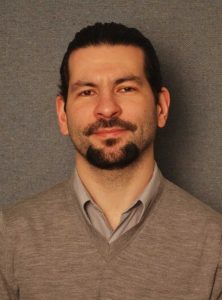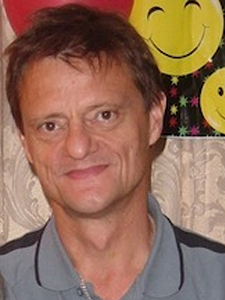Statistics at UWM
The Department allows majors to specialize in statistics in two ways: through the statistics option within the mathematics major, and through the actuarial science major.
At the graduate level, master’s students may choose the statistics or the actuarial science option. Both require passing proficiency exams in addition to coursework. In the statistics track, strong students may opt to write a thesis in lieu of passing the master’s proficiency exam. A new dual master’s degree offered jointly with the Department of Technomathematics at Fachhochschule Aachen (Germany) also allows students to specialize in statistics. Master’s students following the industrial mathematics option may choose a statistical topic for their projects, or do internships that emphasize statistics.
Doctoral students may choose probability and statistics as one of six primary areas of study. Students choosing industrial mathematics as the primary area may emphasize statistics in their dissertation work.
Undergraduate majors choosing the statistics or actuarial science option must complete MthStat 361-362, a year-long post-calculus introduction to probability and statistics. This is the main prerequisite for six courses in applied statistics (Math Stat 562-566 and 568). Two of these, Regression (563) and Time Series Analysis (564) are taught annually. The others are taught in a two-year rotation. These courses all carry both graduate and undergraduate credit. The 500-level courses are often taken by graduate students.
The Department offers two service courses in statistics as well: MthStat 215 (non-calculus) and 467 (for students in engineering and the physical sciences), the latter requiring third-semester calculus. MthStat 467 is cross-listed with Industrial Engineering 467, and at present is usually taught by the Department of Industrial and Systems Engineering. Statistics and probability are an important component of Math 106, Contemporary Applications of Mathematics.
The basic graduate course in statistics is MthStat 761-762, carrying a prerequisite of advanced calculus. Other statistics courses at the graduate level include Decision Theory (MthStat 861), Hypothesis Testing (863), and other advanced topics. A course in measure-theoretic probability (Math 771, Theory of Probability) is offered every spring. Faculty also offer seminars (Math 799) in probability and in statistics.
The UWM Course Bulletin has pages relating to Mathematics (including Probability) for graduates and undergraduates.
Research Topics
The statistics research group currently consists of:
- Jay Beder, Prof.: Gaussian processes, design of experiments, applications to biology
- Vytaras Brazauskas, Prof.: Actuarial Science; Quantitative Risk Management; Robust Statistics
- Daniel Gervini, Assoc. Prof.: Robustness, functional data analysis
- Jugal Ghorai, Prof.: Nonparametric estimation, survival analysis, applications to meteorology
The group works in close association with the Department’s Probability Research Group. Long associated with the statistics group is
- Gil Walter, Professor emeritus: Applied mathematics, statistics
Other former statistics faculty include Julius Blum, John van Ryzin, and V. Susarla.
The Department has a cooperative agreement with the Division of Biostatistics of the Medical College of Wisconsin . Students at either institution may enroll in courses at the other, and faculty at each institution hold adjunct positions at the other and may direct dissertations for students from the other institution. (Two MCW faculty, Ray Hoffmann and the late John Klein, are alumni of our graduate program.)
Within the Department, statisticians play an important role in the Center for Industrial Mathematics, and there is opportunity for collaboration with the Department’s Atmospheric Science group as well. Each year, on a rotating basis, a member of the statistics group acts as Statistics Consultant for the UWM community. Consulting problems run the gamut from Architecture to Zoology and provide a further avenue for collaborative research.
Statistics is also part of many other programs at UWM, in particular the Production and Operations Management/Quantitative Methods group in the Lubar College of Business Administration, the Department of Industrial and Manufacturing Engineering in the College of Engineering and Applied Science, and the Department of Educational Psychology in the College of Community Engagement & Professions. In the Department of History, Prof. Margo Anderson has collaborated with Stephen Fienberg of Carnegie-Mellon on studies of the U.S. Census.





